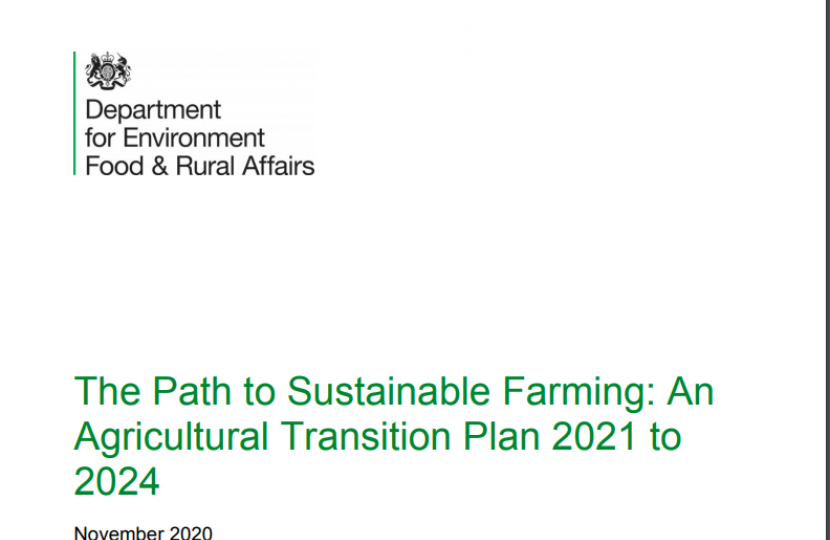
Rutland and Melton MP Alicia Kearns has welcomed the Government’s Agricultural Transition Plan which will transform the way farmers are supported in the most significant change to farming and land management in 50 years.
The plan outlines changes that will come into force over the next seven years to give farmers time to adapt and plan for their futures.
The changes will be designed to ensure that by 2028, farmers in England can sustainably produce healthy food profitably without subsidy, whilst taking steps to improve the environment, improve animal health and welfare and reduce carbon emissions.
From 2021, the Government will begin to move away from the Basic Payment Scheme towards new policies that will be co-designed and tested with farmers, land managers and experts to ensure they deliver for the UK’s agricultural industry.
Direct payments will be reduced fairly starting from the 2021 BPS year with the biggest reductions made to the higher payment bands. The money released will be used to fund new grants and schemes to boost farmer’s productivity and reward their environmental stewardship.
For example, the Environmental Land Management Scheme will incentivise sustainable farming practices, create habitats for nature recovery and establish new woodland to help tackle climate change.
On top of this, the key changes include:
- Investing in improving animal health and welfare as part of the sustainable farming approach. This will initially focus on controlling or eradicating endemic diseases amongst cattle, pigs and sheep.
- Launching a Farming Investment Fund, which will support innovation and productivity. This will open for applications next year and will be used to offer grants for equipment, technology and infrastructure for the future.
- Simplifying and improving existing schemes and their application processes further from January 2021 to reduce the burden on farmers, and the Government will take a modern approach to regulation, cutting unnecessary red tape for farmers and working together with industry to design a more targeted regulatory system.
Rutland and Melton MP, Alicia Kearns, said:
“I’m determined to support Rutland and Melton farmers to reap the benefits our departure from the EU. Replacing overly prescriptive, top-down and one-size for all EU rules with policies that are catered to, and support, our British farming and environment is an important step. We’re cutting out the bureaucracy of the EU Agricultural scheme and enabling farmers to create schemes designed to their personal farm.
“Our farmers deserve immense recognition and support not just for their role in feeding our nation, but for their environmental stewardship and I’m delighted that this carefully phased plan and new approach will do exactly that.”
While the roadmap provides a clear view on the changes coming through the transition, this will be followed by a period of engagement with farmers, land managers and other stakeholders to finalise the design and operation of the future system to ensure they work for everyone. For example, the final design for the future Environmental Land Management scheme will continue to evolve and adapt to the lessons learnt through co-design exercises, such as the ongoing tests and trials and upcoming National Pilot for the scheme.
Alicia Kearns MP continues to liaise with Rutland and Melton farmers to feed back their views on agricultural policy to Government.



